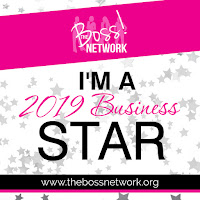Finding Your Pot of Gold By Aundrea Y. Wilcox

A few weeks ago, my sister posted one of the funniest Facebook status updates I’ve read in a long time. She said: “I followed this rainbow for my pot of gold and it took me to work! Hmmm!”
Do you need capital to startup a business or expand your existing business? Where will you get the money? The days of zero-down loans are pretty much gone, and if you’re thinking of getting a grant to start a business or expand, you’re out of touch with reality. Most grant programs require matching funds and they’re rarely geared to for-profit businesses anyway. So where does this leave you?
First look within. Whatever your capital needs, you should expect to put on the table a minimum 20% of what is needed from your own pocket before asking family and friends for their loot to go into business for yourself.
It should be no surprise to learn that about 60 percent of small business financing comes from commercial banks. It also should be no surprise that today’s lending standards are much tougher than they used to be. The fact is, you will need a credit score in the 700's to qualify for most loan programs. The biggest reason that women business owners don’t get the capital they need is because they simply don’t ask. This can be due to fear of rejection or ignorance—not knowing how much or how to ask for a loan.
Many business owners falsely believe that the SBA is a lender. They are not. They only guarantee a loan that your bank may decide to make. The SBA offers a variety of loan guarantee programs for very specific purposes. There are three that are most popular. The 7(a) Loan Program is typically used to establish a new business or to assist in the acquisition, operation, or expansion of an existing business. SBA’s Microloan Program provides small, short-term loans to small businesses and certain types of not-for-profit child-care centers. The SBA makes funds available to specially designated intermediary lenders, which are nonprofit community-based organizations with experience in lending as well as management and technical assistance. Pathway Lending (www.PathwayLending.com) is an example. They provide loans to businesses lacking access to traditional financing, with emphasis on low- and moderate-income communities in Tennessee, resulting in new jobs and wealth creation. Other states have similar entities. These intermediaries make loans to eligible borrowers. The average microloan is about $25,000. Lastly, the CDC/504 Loan Program is a long-term financing tool, designed to encourage economic development within a community. The 504 Program accomplishes this by providing small businesses with long-term, fixed-rate financing to acquire major fixed assets for expansion or modernization.
Maybe you want to explore some less traditional sources of capital? Prospective business owners can use their retirement funds to pay for new business start-up costs. While not considered an abusive tax avoidance transaction, this method is questionable by some because it may solely benefit one individual—the individual who rolls over his or her existing retirement funds to the program in a tax-free transaction. The program then uses the rollover assets to purchase stock of the new business. To learn more about this type of financing go to www.BeneTrends.com .
Another unusual place to fund your startup or expansion is via www.Kickstarter.com. Kickstarter enables an entrepreneur to create a project profile online and seek funders who may even be complete strangers, but they believe in what you’re trying to accomplish. I think this is great for a startup idea, but if you’ve been in business for a while you really should have your ‘stuff’ together, and not have to rely on this type of fundraising, which may make your customers wonder what you are doing with the money that you are making. In this scenario, ‘Backers’ will pledge dollars to your project in exchange for gifts or rewards. However, there is one catch: it’s all-or-nothing funding, so your project must be fully-funded or no money changes hands.
Keep in mind, if you do get your hands on the money you need to start or grow your business, there may not be an opportunity for you to go back to the well for more any time soon. If you borrow money for a particular project, commit to completing the project—don’t use the money to go on a spur-of-the-moment personal trip or make a major purchase that has nothing to do with your business. I promise you will just regret it later, and even worse, you will still owe the money back with agreed upon interest.
Carefully compare the different kinds of financing options available to you; choose the best option based on your current circumstances not necessarily the first option.
Learn more about Aundrea Y. Wilcox at StartUpSavy.biz




This is an informational blog that is very important to the success of every entrepreneur or small business person. Thank you Aundrea!!
ReplyDeleteYou're welcome. Come again!
ReplyDelete“If you borrow money for a particular project, commit to completing the project—don’t use the money to go on a spur-of-the-moment personal trip or make a major purchase that has nothing to do with your business.” – You have to stick this into your mind if you want to be a successful entrepreneur. As an entrepreneur, you must have a mindset that you will pursue what you really want to achieve. You have to endure for now, and enjoy the achievement in the future.
ReplyDeleteCameron Scott @ CONVERGEX